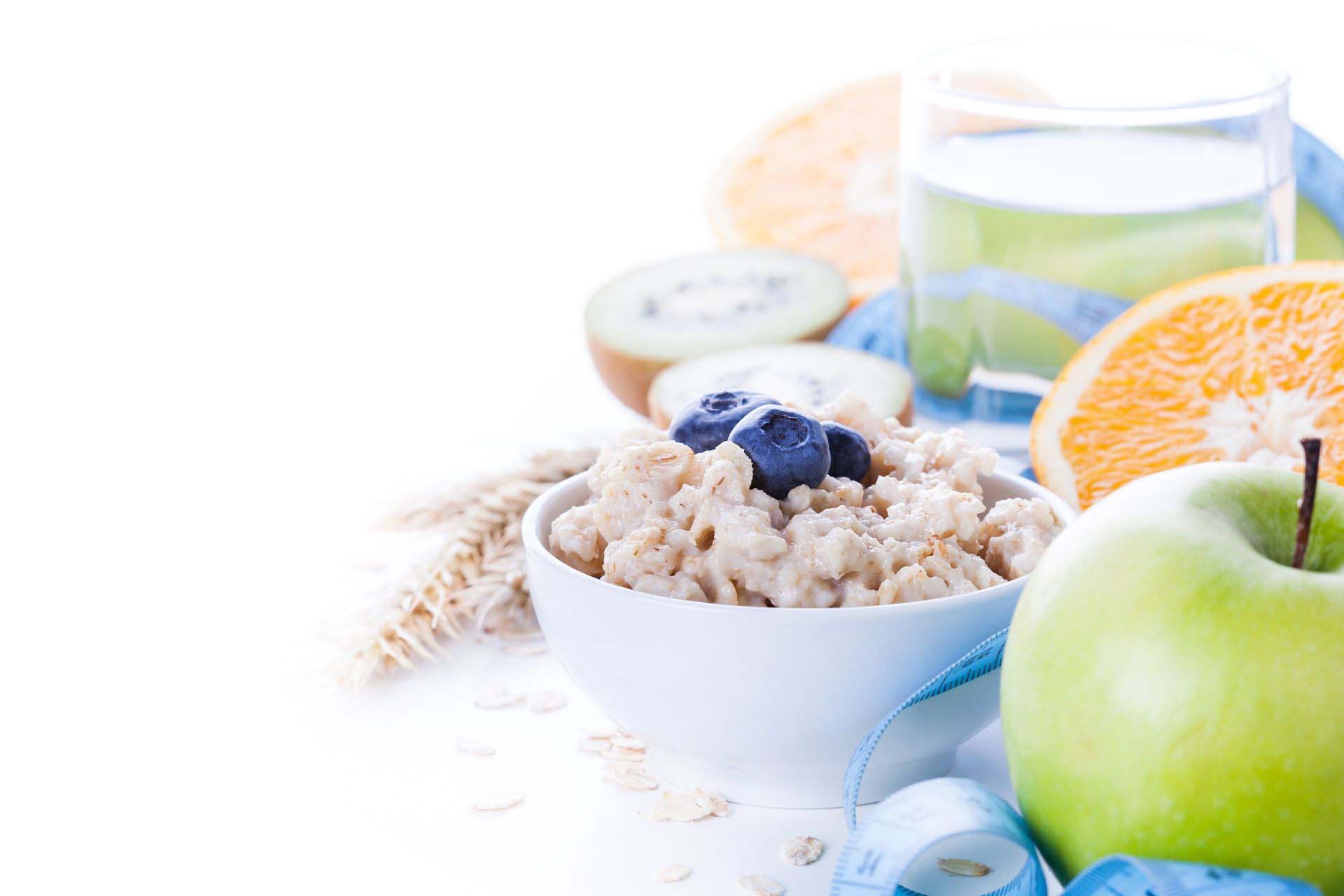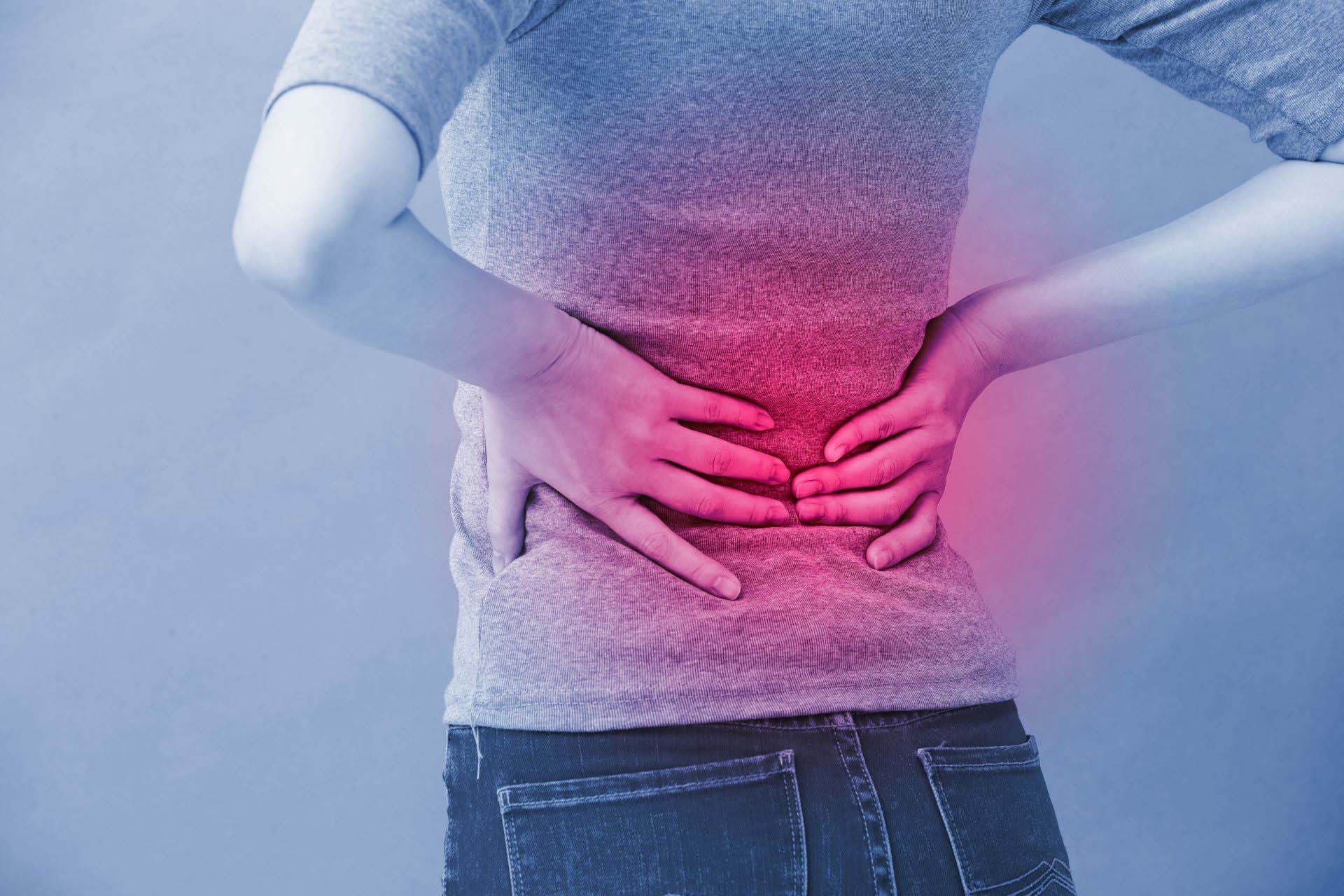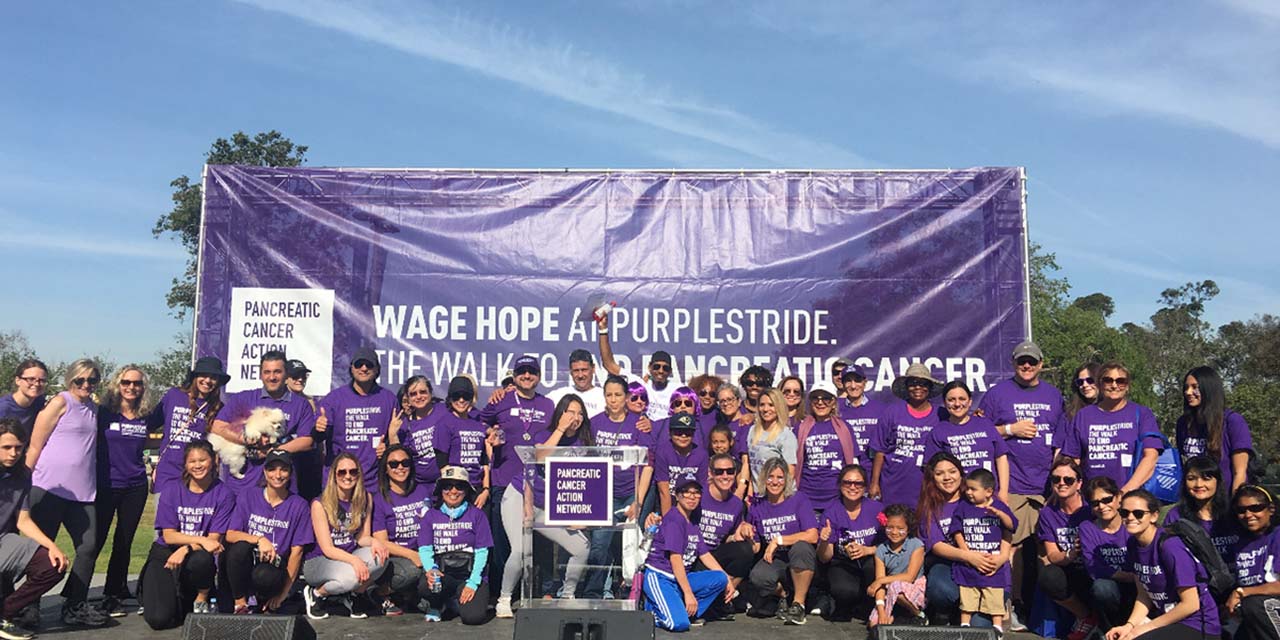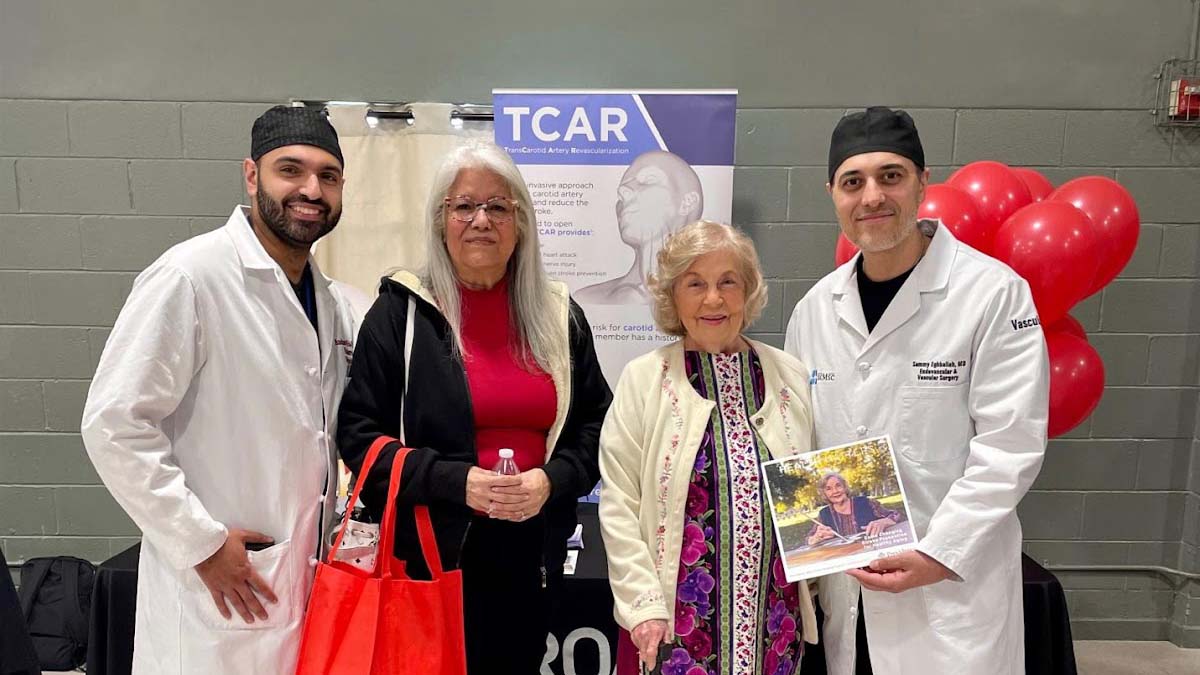Is how you eat linked to your risk of cancer?
If you are a cancer patient, how should you be eating?
Diet and nutrition play a significant role in the prevention and management of cancer. Consuming a healthy and balanced diet can help reduce the risk of developing certain types of cancer and improve the overall quality of life for those living with cancer.
If you are in cancer care, monitoring a condition for cancer, or in need of surgical cancer treatment only, contact the Southern California Multi-Specialty Center for assistance.
Nutrition for Cancer
There is a growing body of research that suggests that diet and nutrition can play a role in cancer prevention and treatment. Eating a healthy, well-balanced diet can help reduce the risk of developing certain types of cancer, and can also help manage symptoms and side effects of cancer treatment.
How Can a Registered Dietitian Help?
At SCMSC, we work closely with you to ensure that during your surgical cancer treatment, you are also maintaining a balanced and healthy diet. We have our own Dietician who will create your own personalized dietary plan to optimize your overall health.
Key Components of a Healthy Cancer-Preventive Diet Include:
- Eating a variety of fruits and vegetables: These foods are high in vitamins, minerals, and fiber, and can help protect against cancer. Aim for at least five servings of fruits and vegetables per day.
- Choosing whole grains: Whole grains are high in fiber and other nutrients that can help protect against cancer. Examples of whole grains include brown rice, quinoa, and whole wheat bread.
- Limiting red and processed meats: Eating too much red and processed meat has been linked to an increased risk of certain types of cancer, particularly colon cancer. Instead, try to eat lean protein sources like fish, poultry, and beans.
- Drinking plenty of water: Staying hydrated is important for overall health, and can also help reduce the risk of certain types of cancer, such as bladder cancer.
- Limiting alcohol consumption: Drinking alcohol in moderation has been linked to a higher risk of certain types of cancer, including breast, liver, and colon cancer. It’s recommended that women limit their alcohol intake to one drink per day, and men limit their intake to two drinks per day.
Are there Nutrients that fight cancer?
In addition to these dietary recommendations, there are certain nutrients that have been shown to have anti-cancer properties, such specific foods such as:
- Vitamin D: This vitamin has been linked to a reduced risk of certain types of cancer, including breast, colon, and prostate cancer. You can get vitamin D from sunlight, certain foods (like fatty fish and fortified dairy products), and supplements.
- Omega-3 fatty acids: These healthy fats, found in fatty fish like salmon and tuna, have been shown to have anti-cancer properties.
- Antioxidants: Antioxidants are substances that protect the body from damage caused by free radicals, which can contribute to cancer development. Examples of antioxidants include vitamin C, vitamin E, and beta-carotene.
What Foods Increase The Risk of Cancer?
A diet that is high in processed and red meats, sugar, and unhealthy fats can increase the risk of cancer. This type of diet can lead to inflammation and damage to the body’s cells, increasing the risk of cancer and other chronic diseases.
Some of the other foods that have been linked to an increased risk of cancer include:
- Processed and red meats: Studies have shown that consumption of processed and red meats, such as bacon, sausage, hot dogs, and beef, can increase the risk of colon, pancreatic, and prostate cancer.
- Sugary drinks and foods: Consuming sugary drinks and foods, such as soda, candy, and baked goods, has been associated with an increased risk of pancreatic, colon, and breast cancer.
- Fried and grilled foods: Cooking meats at high temperatures, such as frying or grilling, can produce chemicals that have been linked to an increased risk of cancer, particularly colon and stomach cancer.
- Alcohol: Heavy alcohol consumption has been linked to an increased risk of liver, breast, and colorectal cancer.
- Highly processed foods: Foods that are highly processed, such as chips, crackers, and packaged snacks, may contain additives and preservatives that have been linked to an increased risk of cancer.
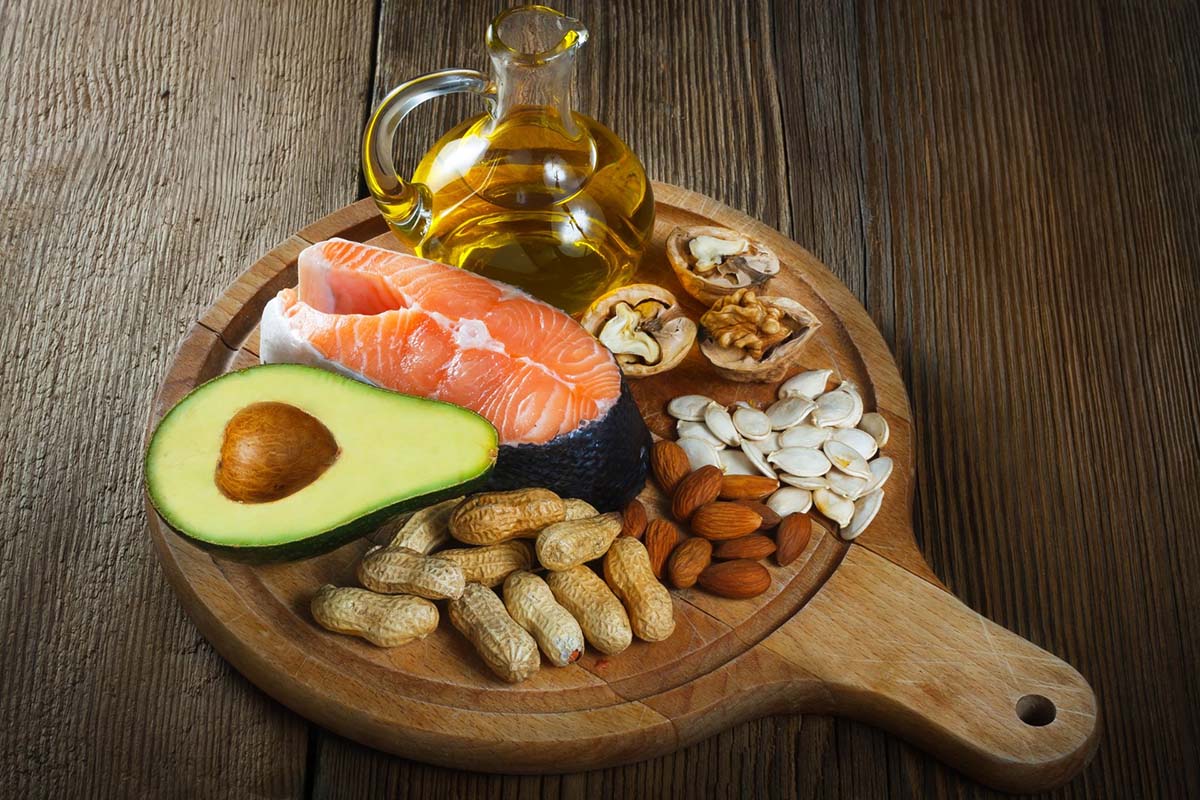
What are Healthy Fats?
Healthy fats are types of fats that provide important health benefits when consumed in moderation as part of a nutritional diet. These types of fats are typically unsaturated, which means they remain liquid at room temperature and have been associated with numerous health benefits, including reduced inflammation, improved heart health, and brain function.
Here are some examples of healthy fats:
- Monounsaturated fats: These fats are found in foods such as olive oil, avocados, nuts, and seeds. They have been shown to help lower LDL (bad) cholesterol levels and reduce the risk of heart disease.
- Polyunsaturated fats: These fats are found in foods such as fatty fish (salmon, mackerel, and sardines), flaxseeds, chia seeds, and walnuts. They are rich in omega-3 and omega-6 fatty acids, which are important for brain health and have been shown to reduce inflammation.
- Omega-3 fatty acids: Found in fatty fish, walnuts, flaxseeds, and chia seeds, these fats have been shown to improve heart health, reduce inflammation, and improve brain function.
It’s important to remember that all fats are high in calories, so it’s important to eat these foods in moderation and as part of a balanced diet. Aim to get the majority of your daily calories from whole foods such as fruits, vegetables, whole grains, and lean proteins, and incorporate healthy fats in moderation as part of your diet.
How Does Weight Affect Cancer?
Excess body weight and obesity have been linked to an increased risk of several types of cancer, including breast, colon, ovarian, pancreatic, liver, and kidney cancer. Obesity is also associated with a higher risk of cancer recurrence and mortality.
There are several ways in which excess body, weight gain and obesity can increase breast cancer and other risks:
- Inflammation: Obesity can lead to chronic inflammation in the body, which can damage cells and increase the risk of cancer.
- Hormones: Fat cells produce hormones, such as estrogen, that can increase the risk of breast, ovarian, and uterine cancer.
- Insulin resistance: Obesity can lead to insulin resistance, which can increase the risk of pancreatic, colorectal, and other types of cancer.
- Immune system dysfunction: Obesity can weaken the immune system, making it less effective at detecting and fighting cancer cells.
Losing weight and maintaining a healthy weight through diet and exercise can help reduce the risk of cancer and improve outcomes for those with cancer. It’s important to talk to your healthcare provider about developing a weight loss plan that is safe and appropriate for your individual needs and medical history.
Important for Cancer Patients
It’s important to note that while diet and good nutrition can play a role in cancer prevention and treatment, they are not a substitute for medical treatment. It has been reported that Steve Jobs decided to self-treat his pancreatic cancer holistically. By the time he sought medical intervention, it was too late.
If you have been diagnosed with cancer or are at high risk for cancer, it’s important to work with your healthcare provider to develop a comprehensive treatment plan.
“Maintaining a healthy weight throughout life is one important way to reduce the risk of cancer.”
– American Cancer Society
If You Are Going Through Cancer Treatments, What Should Your Diet Look Like?
Eating a healthy enough diet during cancer treatment can also help manage the side effects of cancer treatment and support the healing process. Here are some additional tips for modifying your diet during cancer treatment:
- Eat a variety of foods: It is important to consume a variety of foods, including fruits,
- Consider smaller, more frequent meals: Those undergoing cancer treatment may want to eat smaller, more frequent meals throughout the day can help manage nausea and other gastrointestinal symptoms that may occur during cancer treatment.
- Avoid certain foods: Some foods may be more difficult to tolerate during cancer treatment, such as spicy, fatty, or fried foods. Talk to your healthcare provider or a registered dietitian about which foods to avoid.
- Consider supplements: Depending on your individual needs and type of treatment, your healthcare provider or a registered dietitian may recommend supplements to help ensure that you are getting all of the nutrients your body needs.
It’s important to remember that everyone’s nutritional needs are different, and it’s best to work with a healthcare provider or a registered dietitian to develop a nutrition plan that is tailored to your individual nutrition needs, and preferences.
Do alkaline foods help with cancer?
According to a recent study alkaline food has been shown to help reduce the chance of cancer. However, your body regulates its blood sugar through pH and consuming alkaline or acidic foods can’t alter it. It is very unlikely you’ll ever get enough food to change the pH levels in your blood.
What Foods Help With Cancer Recovery?
While there is no one specific food that can cure cancer, a well-balanced diet rich in nutrients can help support cancer patients’ recovery and boost overall health. Here are some types of foods that may be beneficial:
- Fruits and vegetables: These foods are rich in antioxidants, vitamins, minerals, and fiber, which can help boost the immune system and reduce inflammation. Dark leafy greens like spinach, kale, and collard greens, as well as berries, citrus fruits, and cruciferous vegetables like broccoli and cauliflower are particularly high in cancer-fighting nutrients.
- Whole grains: Brown rice, quinoa, whole wheat bread, and oatmeal are a good source of fiber and other important nutrients, and may help reduce the risk of certain types of cancer.
- Lean proteins: Lean proteins like fish, chicken, and tofu can provide the body with essential amino acids, which can help repair and build tissues that may have been damaged during cancer treatment.
- Healthy fats: Foods like nuts, seeds, avocado, and fatty fish like salmon are rich in healthy fats like omega-3s, which can help reduce inflammation and support heart health.
It is important to work with a healthcare professional or a registered dietitian to develop a personalized nutrition plan that meets your specific needs and goals during cancer care and recovery.
“Eating a healthy diet is one of the most important things you can do to take care of yourself and your family.”
– National Cancer Institute
Mealtime Tips for Dealing with Cancer Treatment
Cancer treatment can cause a range of side effects that can impact your appetite and make mealtime challenging. Here are some tips for dealing with mealtime during cancer treatment:
Eat small, frequent meals
Eating smaller, more frequent meals throughout the day can help manage nausea and other gastrointestinal symptoms that may occur during cancer treatment.
Stay hydrated
Drinking plenty of water can help manage some of the side effects of cancer treatment, such as dry mouth and nausea. Sipping on water or other fluids throughout the day can help you stay hydrated.
Incorporate nutrient-dense foods
It’s important to consume nutrient-dense foods that provide your body with the nutrients it needs to support your immune system and promote healing. Foods such as fruits, vegetables, whole grains, lean protein, and healthy fats should be a priority.
Consider cold or room temperature foods
Cold or room temperature foods may be more appealing if you are experiencing nausea or a loss of appetite. Try things like smoothies, yogurt, or chilled soups.
Experiment with flavors
Cancer treatment can impact your sense of taste and make certain flavors less appealing. Experimenting with new flavors and seasonings can help make meals more interesting and palatable.
Talk to a registered dietitian
A registered dietitian can help you develop a meal plan that is tailored to your individual needs and preferences. They can also provide guidance on managing specific side effects related to cancer treatment. The Southern California Multi-Specialty Center has a dietitian on staff for this purpose.
It’s important to remember that everyone’s experience with cancer treatment is different, and it may take some trial and error to find what works best for you. Don’t hesitate to talk to your healthcare provider or a registered dietitian for guidance on nutrition needs and support during this time.
How to prepare food safely during cancer treatment
Ensure your foods are healthy, especially during cancer treatment. Certain cancer treatments weaken our immune system, which raises our risk of infections. Foodborne infections occur when harmful viruses or other contaminants eat food that can cause serious health issues. This is an overview of food safety basics:
- Wash your hands while cooking.
- Wash your hands before using any food.
- Wash your vegetables and fruits carefully before serving.
- Keep your food secure. For example, use separate cutting boards to cut meats raw fish or vegetables.
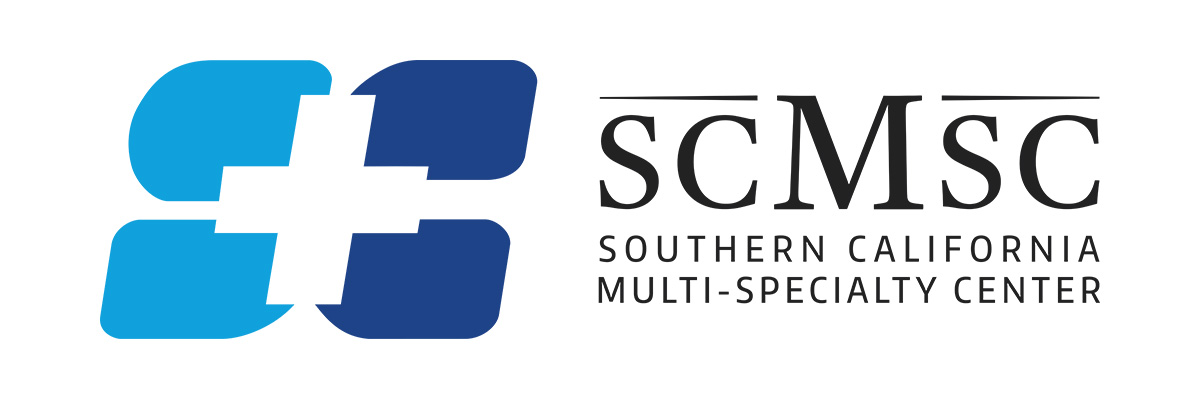
Diet and nutrition play a crucial role in cancer prevention and treatment. A healthy diet that includes a variety of fruits, vegetables, whole grains, and lean proteins can help reduce the risk of cancer. Adopting healthy eating habits, such as limiting processed and red meats, avoiding sugary drinks, and maintaining a healthy weight can further reduce the risk of developing cancer.
Nutrition can also aid in cancer treatment by supporting the body’s immune system and improving treatment outcomes. By making simple changes to our diet and lifestyle, we can take proactive steps towards reducing our risk of cancer and improving our overall health and well-being.


